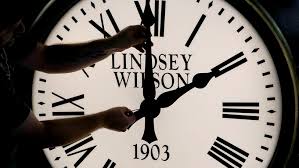Kristi Rolf
In the early hours of Sunday morning, I lay awake in bed staring at the dim glow from the phone in my hand. I stared at my clock app which read, “New York: 1:59 am” and waited for it to switch to, “New York: 1:00 am.” I was struck by the surreal nature of daylight savings time. Isn’t it strange that twice a year, entire countries manipulate the time by an hour in the dead of night and cause temporary disruption to everyday life?
The history and controversy surrounding daylight savings time is complicated, but on this early November morning, I considered a simple thought experiment: what would be different if tomorrow we didn’t have to adjust to an unnatural time change?
Without daylight savings time, no one would have woken up on November 7th to pets complaining about their disrupted feeding time. Instead, households across America heard whimpering and meowing of well-loved furry critters’ feelings betrayed by the delay in their morning meal.
My Monday morning classes would have been less predictable without the same old quips about how “at least we gained an hour this time!” Office small talk would have relied on the usual summary of weekend activities, instead of biannual observations on the timing of sunrise and sunset.
If there had been no daylight savings time to end, this week I certainly would feel more cheerful walking across campus to the library after dinner to begin studying. It’s a rude awakening every year when the sun sets an hour earlier and I feel like a nocturnal creature doing most of my schoolwork after dark. Of course, the days would get shorter whether or not we observe daylight savings time, but the natural change is gradual and doesn’t have the shock factor that occurs when we fall back.
Whether these observations are arguments for or against daylight savings time is up to interpretation. But it is always fascinating to imagine a world without certain social constructs such as this.




